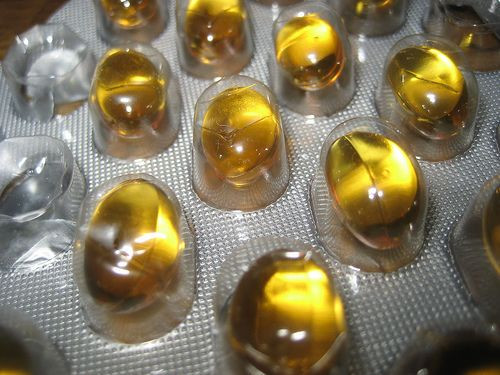Did Fish Oil Cure Grant Virgin’s Brain Damage? Parents Sneak Alternative Treatment To Son After Hit-And-Run

When their son, Grant Virgin, fell into a deep coma as a result of a hit-and-run accident, parents John and JJ Virgin decided that rather than heed their doctor’s suggestion to give up the fight for their son’s life, they’d become vigilant. Relying on the expertise of third-party professionals, and a burgeoning theory for treating brain damage, the Virgins began down the aggressive route to fish oil-based treatment.
Using the omega-3 fatty acids found in fish oils as a means to repair a damaged brain is a theory that is, at best, emerging. A review of the scientific literature indicates that only seven case studies have examined the effects of such a treatment. Heartening, however, is the fact all seven resulted in successful outcomes. Some have criticized the Virgins’ efforts as dangerous, while others laud their tenacity to keep their son alive — a stance that is perhaps tough to refute, given that Grant is on his way to a full recovery.
Grant suffered a torn aorta, compound bone fractures, and spinal fractures. But the injury that plunged him into a coma was the traumatic brain injury — a nasty skull fracture that caused severe bleeding inside his brain. Doctors gave the 16-year-old less than hopeful chances, to which his parents adamantly resisted.
"It's like, how dare you not fight for my son's life?" JJ Virgin told CNN. "It really took us...getting very aggressive and assertive to save our son's life, because they weren't going to do it. They told us not to. They told us to let him go."
After some snooping around in the recent news and consulting with friends about potential treatment options, the family landed on the omega-3s found in fish oil as a potential candidate. The family saw success in a 2012 case study of a man named Bobby Ghassemi, whose own coma was vanquished after heavy doses of the fish oil appeared to reconstruct the wall of his brain cells — a structure, experts note, comprised almost entirely of omega-3s.
"If you have a brick wall and it gets damaged, wouldn't you want to use bricks to repair it?" said Dr. Michael Lewis, founder of the Brain Health Education and Research Institute, to CNN. "By supplementing using (omega-3 fatty acids) in substantial doses, you provide the foundation for the brain to repair itself." The acids perform double duty, in fact. Along with rebuilding the brain itself, the oils help to reduce inflammation in the surrounding tissues. This inflammation can arise even from mild trauma, such as a concussion during football practice.
In Grant Virgin’s more severe case, the wave of snapping neurons produced a sophisticated rush of inflammation. When doctors introduce fish oil into the inflamed brain, a chemical in the oil, called EPA (eicosapentaenoic acid) gets broken down and leaves behind an inflammation-fighting metabolite, called resolvin. It’s this metabolite that experts believe could essentially “turn off” the brain’s inflammation.
Such a simple, cost-effective alternative has advocates clamoring for the fish oil treatment. In the U.S. alone, roughly 1.7 million people suffer from traumatic brain injuries each year, according to the Centers for Disease Control and Prevention. Though no large-scale clinical trials have put the fish oil therapy to a controlled, randomized test, the anecdotal evidence of Grant Virgin’s recovery has already instilled great confidence in his family.
JJ Virgin woke up one morning remembering a strange dream she’d had the night before: Grant had called her, and the two had a full conversation. But when she arrived at the hospital the next morning, nurses informed her that Grant had, in fact, called home. This was 48 hours after receiving the high-dose fish oil.
"We had been told he'd never be able to recognize anybody, he will never be able to focus his eyes, all the grim stuff," John Virgin explained. "(They said) the diffuse damage to his brain is so much that he's never going to be Grant again."
Now it's 16 months after the accident and Grant may recover even past the point from which he sustained the injuries, according to CNN. And while the breakthrough recovery came as the result of clinical disobedience, the family is grateful they took the leap of faith. JJ, who has become a strong advocate for the omega-3 treatment route, hopes their story lights a fire beneath conventional medicine.
"I think one of the saddest things is to get to a place and have someone tell you, 'You should just let your son die,' and you don't have the information to make the right decision," JJ Virgin told CNN. "There is such hopelessness about brain injury and there shouldn't be."



























